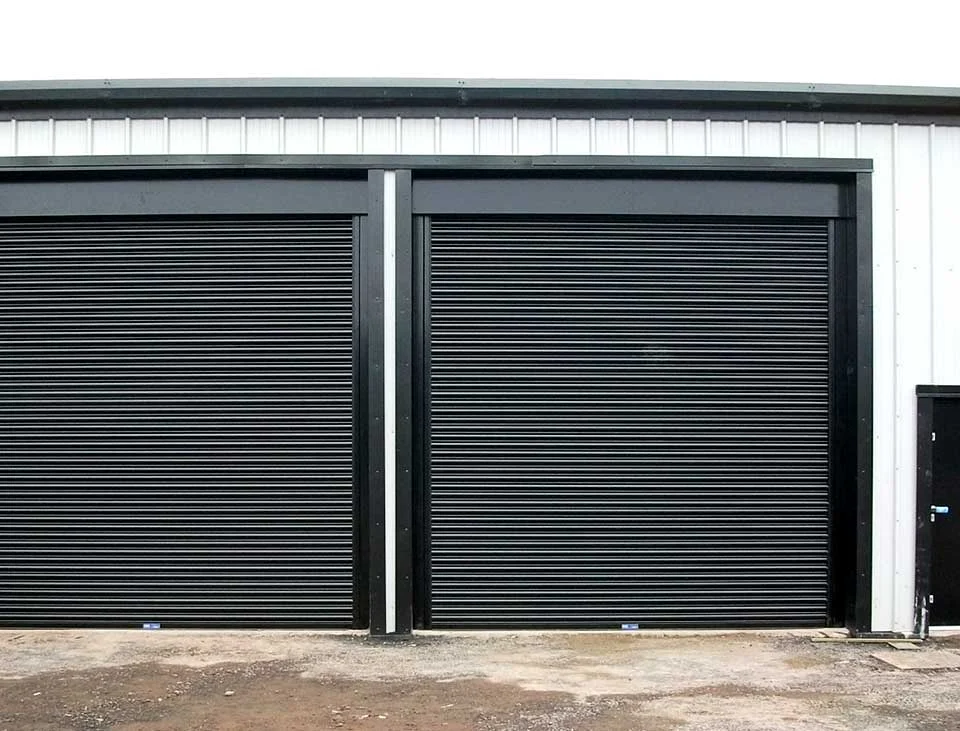Industrial doors are essential components in any facility, providing security, operational efficiency, and smooth access to different parts of the building. However, due to constant use and exposure to challenging environments, industrial doors can suffer from wear and tear over time. While maintenance might seem like an additional expense, the long-term value of investing in regular industrial door maintenance is undeniable. In this guide, we’ll explore the many ways that consistent maintenance adds value, from cost savings to improved safety and operational efficiency.
Why Industrial Door Maintenance is a Smart Investment
Many businesses view maintenance as a cost, but when it comes to industrial doors, regular upkeep is an investment that pays off in numerous ways. By allocating resources to maintenance, you avoid the costly consequences of neglected doors, including unexpected repairs, operational downtime, and even potential safety hazards. Key benefits of industrial door maintenance include:
- Reduced Repair Costs: Routine maintenance helps catch minor issues before they escalate into major, expensive repairs.
- Extended Door Lifespan: Proper care can add years to the life of your doors, delaying the need for costly replacements.
- Enhanced Safety: Well-maintained doors reduce the risk of accidents, protecting employees and assets.
- Improved Operational Efficiency: Smoothly functioning doors ensure efficient workflows, reducing downtime and delays.
Let’s explore each of these benefits in detail and see how they contribute to the long-term value of industrial door maintenance.
1. Cost Savings on Repairs and Replacements
One of the most immediate and tangible benefits of industrial door maintenance is the reduction in repair costs. Without regular maintenance, small issues such as loose bolts, worn-out parts, or track obstructions can escalate into major problems that require expensive repairs or even door replacements. Preventative maintenance addresses these minor issues early on, saving on future repair costs.
Example of Preventative Maintenance Cost Savings
- Routine Lubrication: Regularly lubricating hinges, rollers, and tracks can prevent friction-related wear and tear, extending the life of these components.
- Tightening Loose Hardware: Catching and tightening loose bolts can prevent parts from wearing out prematurely or causing alignment issues.
- Replacing Worn Parts Promptly: Replacing worn springs, cables, or seals when needed prevents further damage to the door mechanism.
In the long run, routine maintenance costs are significantly lower than emergency repairs or complete replacements, making it a wise financial decision.
2. Extending the Lifespan of Industrial Doors
Industrial doors are a significant investment, and businesses naturally want to maximise the lifespan of these assets. Regular maintenance can add years to the life of your doors by keeping all components in good condition and addressing minor wear before it causes major damage. Without proper maintenance, doors can degrade quickly, leading to premature replacements that are costly and disruptive to operations.
Key Maintenance Practices to Extend Door Life:
- Cleaning Tracks and Rollers: Debris and dirt can build up in the tracks, causing friction and obstructing smooth movement. Regular cleaning keeps the door running efficiently.
- Checking and Replacing Seals: Weather seals prevent drafts, dust, and moisture from entering. Maintaining these seals can help prevent door corrosion and internal damage.
- Testing Balance and Alignment: Ensuring the door is balanced and aligned reduces strain on the motor and hinges, extending their lifespan.
By following a routine maintenance plan, you protect your investment, ensuring that your industrial doors remain functional for as long as possible.
3. Enhanced Safety and Reduced Liability
Industrial doors that aren’t regularly maintained can become a safety hazard, posing risks to employees and anyone who uses them frequently. Heavy, malfunctioning doors can lead to accidents or injuries, increasing liability for the business. Consistent industrial door maintenance helps prevent these risks by ensuring that all components are in safe working order.
Safety Checks for Reliable Operation:
- Testing Safety Sensors: Many industrial doors come equipped with sensors to prevent accidental closing on people or objects. Regularly testing these sensors ensures they work as intended.
- Inspecting for Loose or Damaged Parts: Worn springs, frayed cables, or damaged tracks can cause the door to malfunction. Regular inspections and timely repairs keep these risks in check.
- Ensuring Proper Door Closure: Doors that don’t close properly can compromise building security and allow unauthorised access.
By investing in maintenance, you protect employees, reduce the risk of accidents, and lower potential liability, creating a safer work environment for everyone.
4. Improved Operational Efficiency and Reduced Downtime
Industrial doors that are functioning smoothly contribute to efficient workflows by providing quick, reliable access to different areas of a facility. When doors break down or operate slowly due to poor maintenance, they create delays that disrupt operations. Regular industrial door maintenance helps keep your facility running smoothly by preventing unexpected breakdowns and minimising downtime.
Efficiency-Boosting Maintenance Tasks:
- Lubricating Moving Parts: Proper lubrication ensures that the door opens and closes smoothly, reducing time spent on access.
- Testing Motor Function: For automated doors, checking motor health is essential to prevent sudden failures.
- Preventing Alignment Issues: Misaligned doors may jam or require extra force to operate, slowing down processes. Regular alignment checks help prevent these issues.
With well-maintained doors, your facility remains efficient, and employees can move freely and safely through high-traffic areas without delays.
5. Meeting Compliance Standards and Avoiding Fines
Industrial settings are subject to numerous safety and maintenance regulations, and failing to meet these standards can result in fines, penalties, or even business interruptions. Regular industrial door maintenance helps ensure compliance with these standards, particularly for fire doors, high-speed doors, or doors located in hazardous environments.
Compliance-Focused Maintenance Tips:
- Keep Detailed Maintenance Records: Documentation of all maintenance activities can be useful during inspections, showing that you’re meeting regulatory standards.
- Schedule Regular Safety Inspections: Have professionals inspect safety features, especially for fire-rated doors, to ensure they meet compliance requirements.
- Address Wear and Tear Promptly: Keeping doors in safe, working order helps avoid penalties related to non-compliance with safety standards.
By prioritising maintenance, you safeguard your business from regulatory issues, demonstrating a commitment to safety and compliance.
6. Building a Reputation for Reliability and Professionalism
A well-maintained facility reflects positively on a business, showcasing a commitment to safety, quality, and professionalism. Reliable industrial doors contribute to a smooth visitor experience and instill confidence in both employees and clients. By keeping doors in excellent condition, you project a professional image that supports your company’s reputation.
Benefits to Business Reputation:
- Client Trust: Clients visiting your facility are more likely to view your business as organised and trustworthy if they see that equipment is well-maintained.
- Employee Morale: A safe, well-maintained environment boosts employee morale, showing that the company prioritises their safety.
- Professional Image: A facility where doors operate smoothly and efficiently reinforces your business’s commitment to quality.
In a competitive market, small details like well-functioning industrial doors can make a big difference in building trust and credibility.
Final Thoughts: Long-Term Value of Industrial Door Maintenance
Investing in industrial door maintenance offers substantial long-term value, far outweighing the costs associated with regular upkeep. From reducing repair expenses and extending the life of your doors to enhancing safety and maintaining compliance, regular maintenance is a proactive approach that supports your business’s operational and financial goals.
By establishing a maintenance schedule, you’re making a smart investment that keeps your industrial doors—and your facility—functioning at their best. Regular checks, timely repairs, and preventive care contribute to smoother operations, improved safety, and cost savings, ensuring that your doors serve as reliable assets to your business for years to come. The benefits are clear: prioritise industrial door maintenance to protect your investment, promote a safe working environment, and support the long-term success of your business. Read More



